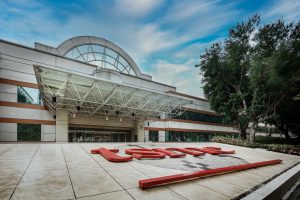Popular Keywords
- About Us
-
Research Report
Research Directory
Semiconductors
LED
Consumer Electronics
Emerging Technologies
- Selected Topics
- Membership
- Price Trends
- Press Center
- News
- Events
- Contact Us
News

Contract chip manufacturer United Microelectronics Corp has partnered with Intel to develop a 12-nanometer technology platform and will commence production at three Intel facilities in Arizona, USA. According to a report by Nikkei, mass production for chips destined for communication and other appli...
News

It's reported that TSMC's new fab in Arizona, USA, is rushing to conduct the trial production of its first production line by mid-April and aims to complete all preparations for mass production by the end of this year. According to a report from the Economic Daily News, if everything goes smoothly, ...
News

The semiconductor battleground of the Angstrom Era has commenced earlier than expected, with TSMC advancing its plant expansions in Taiwan. As per Commercial Times citing sources, TSMC is poised to increase its 2024 capital expenditure from the initial estimate of USD 28-32 billion to USD 30-34 ...
News

According to wccftech, Intel's new GPUs will come in two models, namely Battlemage-G10 (abbreviated as BMG-G10) and Battlemage-G21 (abbreviated as BMG-G21). These two new GPUs from Intel were revealed in an internal document. According to the document, the BMG-G10, targeted at enthusiasts, is a ...
News

Benefited from frequent orders from its top three clients, Apple, Intel, and AMD, strong momentum has reportedly been driven for TSMC's 3-nanometer orders, as per a report from Economic Daily News. Anticipated to see sequential growth throughout the year, these orders are expected to remain robust u...